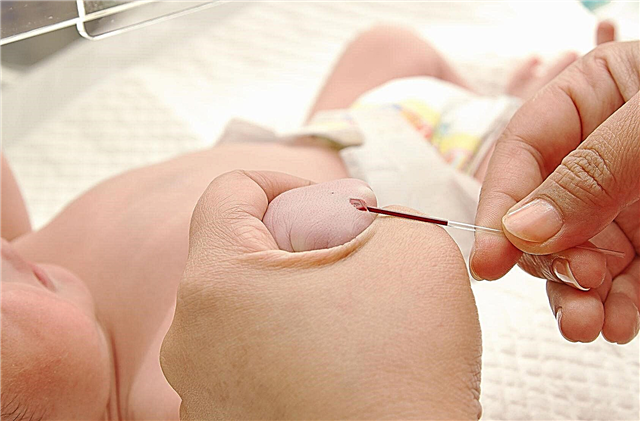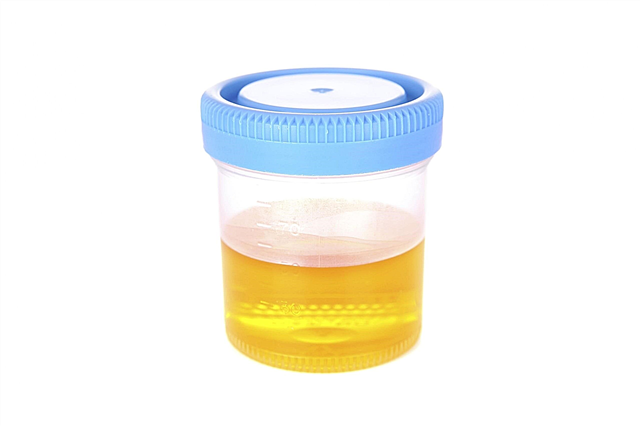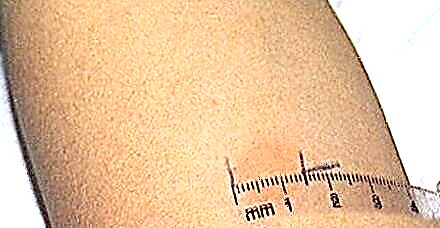
The smell of acetone from the baby's mouth and occasional vomiting are a reason to see a doctor. It is possible that the matter is in acetone syndrome, which requires an obligatory individual approach.
What it is?
Acetonemic syndrome in children is not considered a separate disease, it is a complex of signs associated with the accumulation of ketone bodies in the child's blood plasma. In medicine, the syndrome has other names, for example, non-diabetic ketoacidosis or acetonemic vomiting.
The specified pathological condition occurs mainly in children, and therefore is considered a typical childhood pathological condition... Sometimes there is no reasonable explanation for such attacks of vomiting, the syndrome is considered idiopathic or primary. This occurs in about 5% of children under the age of 12. At the same time, girls are more susceptible to violation than boys.
If the symptom complex is based on a certain disease, the syndrome is called secondary. How widespread it is, doctors around the world find it difficult to answer - such statistics simply do not exist.


Ketone bodies that accumulate in the blood plasma of children are acetone, b-hydroxybutyric acid, acetoacetic acid. If the syndrome is an independent idiopathic symptom complex, then acetonemic crises usually develop at long intervals between meals (on an empty stomach).
Secondary acetonemic syndrome develops against the background of uncompensated diabetes mellitus, with diseases of the thyroid gland, craniocerebral trauma, the presence of brain tumors, after serious poisoning, if there was a toxic effect on the liver, with severe infectious intoxication, leukemia.


Causes
Speaking about acetone vomiting syndrome, it should be understood that we are still talking about idiopathic acetonemia, and not about secondary... If the accumulation of ketone bodies is associated with the underlying disease, then the description of the syndrome as a separate complex of symptoms does not make sense - the disease is identified and treated in the way that a specific disease should be treated. We will talk about the state when the baby is generally healthy, but sometimes the parents notice the smell of acetone from his mouth, and vomiting also occurs, which cannot be explained.
Ketone bodies can accumulate in the blood plasma of a baby who receives few carbohydrates from food. Excessive fat intake can also be the root cause. In the liver of children, fewer enzymes are produced that are involved in metabolic oxidation processes. Also, due to natural age factors, all children have a reduced intensity of the process of cleavage and removal of ketone bodies.
There are several theories of the origin of childhood acetone syndrome. According to one version, vomiting begins as a result of the fact that the concentration of glucose in the child's blood drops, if he is hungry and the body begins to create reserve sources of energy - these are ketone bodies. But their large number causes intoxication and irritation of the digestive tract. Hence the emetic manifestations.
According to another version, the concentration of glucose in the child's body can decrease faster than the level of ketone bodies, and therefore this imbalance occurs.
But all researchers agree that the starting mechanism is usually fasting or an infectious disease in the acute phase. Accumulated stress, psychological instability, prolonged exposure to open sunlight, hunger and overeating, too much protein and fat in the absence of the proper amount of carbohydrate food can cause an attack of acetone vomiting.
In newborns, such vomiting is usually associated with the fact that their mothers in the later stages suffered from preeclampsia in an edematous form and nephropathy.


Symptoms and Signs
To a greater extent, according to the observations of pediatricians, babies with high excitability in the organization of the nervous system, children with thin physique, afraid of everything in the world, suffering from neurosis and nighttime sleep disorders are susceptible to this syndrome. A manifestation of the syndrome is an acetone crisis - a pathological condition that arose spontaneously and suddenly or after the appearance of "precursors" (some children feel weak before the onset of vomiting, refuse food, complain of headaches).
The crisis itself is a repeated severe vomiting that develops in response to any attempts to feed or water the child.
At the same time, not even the vomiting itself is dangerous, but the fact that the signs of intoxication and dehydration are growing very intensively - at the toddler, the skin becomes inelastic, the mucous membranes become dry, he cries without tears, the skin visually turns pale. With a severe crisis, a convulsive syndrome may develop.
The body temperature rises to 37.5-38.5 degrees. The child complains of abdominal pain, constipation or loose stools as a comorbid disorder. Most often, the very first symptoms of an acetone syndrome appear by 2-3 years, may worsen by 6-7 years of age and completely disappear by the time the child reaches the age of 12.
Acetonemia is distinguished from any other vomiting by the characteristic odor from the baby's mouth - some compare it with rotten apples, some with fumes. This acetone odor can appear even at the stage of "precursors", that is, before the onset of vomiting. Smells not only from the mouth, but also from urine... Sometimes the smell is caught only in the immediate vicinity of the baby, and sometimes even at a distance of several meters.

What to do?
It would be wrong to resort to folk and non-traditional means. It is better to start with a visit to the pediatrician, who will find out exactly what kind of pathology is - primary or secondary. The child will be prescribed laboratory tests. With this pathological condition, blood tests are usually characterized by leukocytosis, an increased content of neutrophils, an increase in the erythrocyte sedimentation rate. Ketone bodies are found in urine.
It is very important to visit a doctor with a baby, because these symptoms are quite similar to appendicitis, peritonitis, meningitis, encephalitis, brain tumors, poisoning and even intestinal infection. Only a qualified medical professional can distinguish one from the other.

Treatment
Acetonemic syndrome should be treated in a comprehensive manner, and the main task is the correct way out of crises and prevention of repeated attacks. If the child is small, then dehydration can be fatal for him. Therefore, it is advisable to hospitalize babies in a children's hospital, where medical workers will not allow dehydration. A diet with acetone syndrome requires a rather severe restriction in the diet of fats, but it is recommended to use carbohydrates, which are quickly absorbed without load (from cereals, cereals). The menu should provide for a special drinking regime - you need to drink often and little by little.
Some of the ketone bodies that have penetrated the intestines can be neutralized by means of a sodium enema (sodium bicarbonate solution is used for its preparation). A child with acetone vomiting is recommended to take oral rehydration agents (replenish the water-salt balance). For this use "Regidron", "Humana Electrolyte", as well as alkaline mineral water or homemade saline solution according to the method of Dr. Komarovsky.
The child may be given antiemetics, such as "Cerucal", antispasmodics, herbal sedatives. With the right approach, aimed at eliminating dehydration, the symptoms of the crisis subside in 2-4 days.
Parents should avoid periods of prolonged fasting between attacks.
The child should be regularly seen by the local pediatrician. You need to carefully monitor the diet, it should not contain an abundance of fatty foods, preference should be given to dairy products, vegetables and fruits. Particular attention should be paid to the prevention of seasonal and colds. It is important not to overload the child's psyche, to monitor his emotional and psychological well-being. Quenching and swimming are helpful. It is important to ensure that your child gets enough sleep.
Sometimes doctors consider it necessary to prescribe a course of vitamins, enzymes, massage for prevention. In pharmacies, express tests for the determination of acetone and ketone bodies are available, with their help parents can independently monitor the child's condition by conducting a urine test at home.
When acetone syndrome is detected and confirmed in a baby, he should be registered with a pediatric endocrinologist. The child will be removed from the register if there have been no repeated crises within 3 years, and the annual examinations did not show any deviations in the analyzes.

Dr. Komarovsky tells more about the syndrome in the next video.



